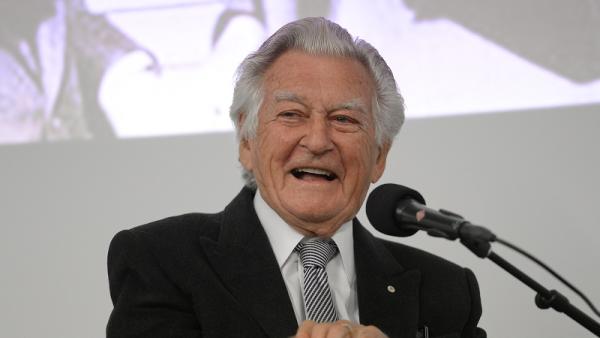UTS:ACRI
To read the full transcript please download the PDF
Download
Executive Summary
On June 4 2015 the Australia-China Relations Institute (ACRI) at the University of Technology Sydney presented the second instalment of our ‘Prime Ministers Series’. The Hon. Bob Hawke AC was Prime Minister from December 1983 to December 1991. He was Australia’s longest serving Labor Prime Minister, with four terms in office.
Mr Hawke discussed Australia’s burgeoning relationship with China during his time in as Prime Minister and contemporary developments in Chinese diplomacy with renowned journalist and broadcaster Geraldine Doogue.
Less than a month after Mr Hawke became Prime Minister, then-Premier of China Zhao Ziyang made the first visit to Australia by a Chinese head of government. Mr Hawke developed a strong personal relationship with Mr Zhao as well as other Chinese leaders and officials.
Mr Hawke spoke of the importance he placed on Australian engagement with China as Prime Minister, recalling, ‘I said at my first press conference for international correspondents soon after I became Prime Minister that more than anything else, the most important external factor determining the future economic welfare of Australia would be our increasing enmeshment with Asia in general and China in particular.’
Praising Deng Xiaoping’s reforms, Mr Hawke remarked that the ‘decision that was taken by Deng Xiaoping to move China towards a market economy and open up to the outside world…is the single most important political decision made in peacetime by any leader in the twentieth century.’
Mr Hawke played a seminal role in the development of commercial cooperation between Australia and China. He proposed greater integration of both countries’ iron ore and steel industries, encouraging joint ventures in these sectors. In 1984 Mr Hawke announced the establishment of the Australian Consulate-General in Shanghai, its first in China.
Mr Hawke granted 42,000 permanent visas to Chinese students in Australia following the June 1989 events in Tiananmen Square. He said, ‘I was in the situation where I – just before I had to go out on the stage here in Australia and respond – I’d just moments before received a cable from our embassy in Beijing setting out the tragic and gruesome details of the deaths of the people in Tiananmen Square, so I was terribly upset…I just made the decision on the spot that the Chinese students here in Australia would be permitted to stay and when I went off the stage the senior bureaucrats said, ‘Prime Minister, you can’t do that’. I said, ‘It’s done. They’re staying’.
On the South China Sea, Mr Hawke advocated for resource-sharing and cooperation, stating this was ‘the best hope’ for the region. He said, ‘[W]hat would make sense would be that [China] should call a meeting of the other five states who have claims in the region and offer to set up a structure for a joint development of resources in the region’. Asked whether he thought the surrounding countries would accept this Mr Hawke said, ‘I think they would and I think they should. What interest have they got in the conflict? If you’re looking just at self-interest for these countries, it’s much better served by a non-belligerent situation and one of which is getting some share of the resources.’
Mr Hawke also touched upon the strategic rivalry between China and the US, asserting, ‘There’s absolutely no future whatsoever in conflict. No future for the United States or for anyone in conflict between China and the United States. As I say, for China, a peaceable regional environment and world environment has been a sine qua non of this marvellous achievement and that’s why they are not going to, in the end, jeopardise that situation.’


